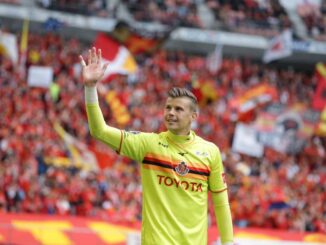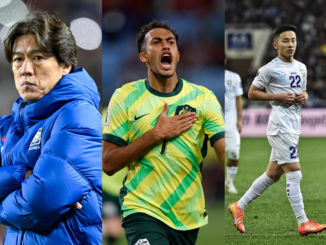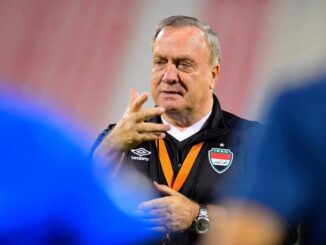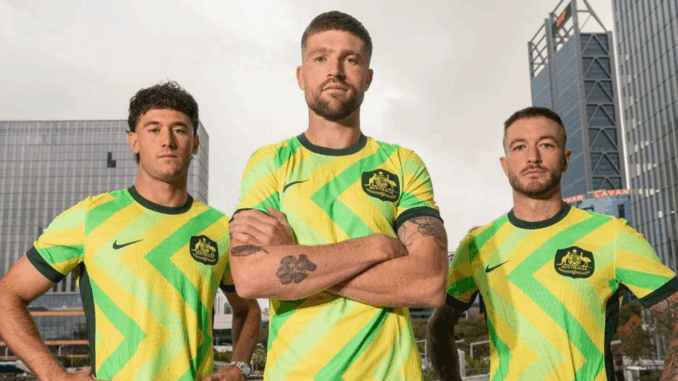
When Australia last played Japan, just weeks into the Tony Popovic era, they walked away with a hard-earned 1-1 draw after a pair of own goals at Saitama Stadium.
It was a precious point for a campaign that, at that point, was teetering on the edge given their less than auspicious start to qualifying; a loss at home to Bahrain and a draw away to Indonesia.
After Graham Arnold’s abrupt departure as head coach, Popovic was parachuted in to take control and steer the ship back on course for automatic qualification; a prospect at the time that looked a long way from reality.
But after a win and a draw in his opening two fixtures in charge, there was light at the end of the tunnel. Popovic, as is his want, however, demanded more.
“It’s not just creativity, we have to improve all over the park because we are aspiring to challenge Japan,” said the 51-year-old at the time.
“Challenging them regularly as the best team in Asia. To do that we know we have to improve.”
Tonight, in the Western Australian capital of Perth, will be a test of just how much this side has improved in the eight months under Popovic.
Speaking to the assembled media for the customary pre-game press conference, Popovic was adamant this side was an improved version of the one he inherited last year.
“The growth and development and the way the team has evolved are clear,” he said.
“We all see that. We understand there is a lot more growth in us, but we’re a much better team than we were in October.”
The proof is in the pudding, however. Or to be more accurate, on the pitch, and with Japan naming a weakened squad after they sealed qualification in the previous international window in March, expectations of a drought-breaking win for the Socceroos have only increased.
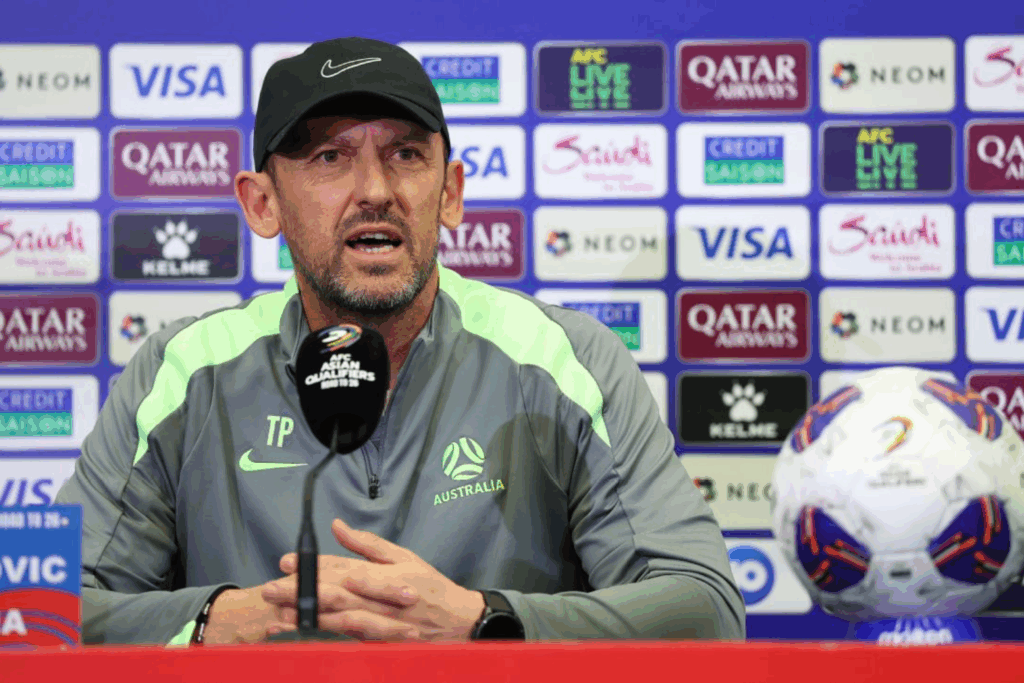
It’s been 16 long years since Australia last tasted a victory over their regional foes – a record Popovic said would be broken eventually, and what better time to do it than right now with so much on the line.
The carrot, of course, is World Cup qualification. While a win and three points for Australia won’t officially secure their passage through to the tournament in North America next year, it would all but guarantee them progression given their vastly superior goal difference to Saudi Arabia.
A win for Australia would mean Saudi Arabia, a side that has scored just one goal in their past six games and only four for the entire campaign, would need to beat both Bahrain, which kicks off three hours after the Australia-Japan game has finished, and Australia in Jeddah next week and do so by overturning, at minimum, a -10 goal difference.
Mathematically possible, but a scenario devoid of all reality.
The context only serves to sharpen the focus in Perth, where everyone – from the coaches, to the players, to the media and the fans – is aware of what is at stake.
“We certainly are aware of what these games mean to us, they mean to Australia and to every football fan out there supporting the Socceroos,” Popovic said before the game.
“We’ve taken an approach, window by window, to get the results we need, to keep improving our game, and we’ve maintained that through this preparation.
“Every game is significant for the Socceroos. But, obviously, these last two games, for automatic qualification, we know what we need to do; we need to put that into action, and we’re confident we can do that.”
The broader context of qualification is equally as important for the game in Australia. The past week has shown Australian football at its best, with a sold out A-League grand final in Melbourne, the Matildas packing out stadiums in Melbourne and Canberra, and the game in Perth expected to get close to 60,000.
If you were to just take the past week in isolation, you would forgiven for thinking the game in Australia is in rude health. The reality, as it always is, is very different.
The A-League and its clubs continue to hemorrhage money, with multiple clubs in financial distress and just about clinging on for survival.
And despite the continued success of the Matildas, Football Australia’s recent financial statements showed a loss of $8.5 million, largely owing to unpaid debts from the Australian Professional Leagues (the company that operates the A-Leagues), which came just days after long-time CEO James Johnson announced his departure from the role.
The boost, both financially and emotionally, from qualifying for next year’s tournament would come at an opportune time.
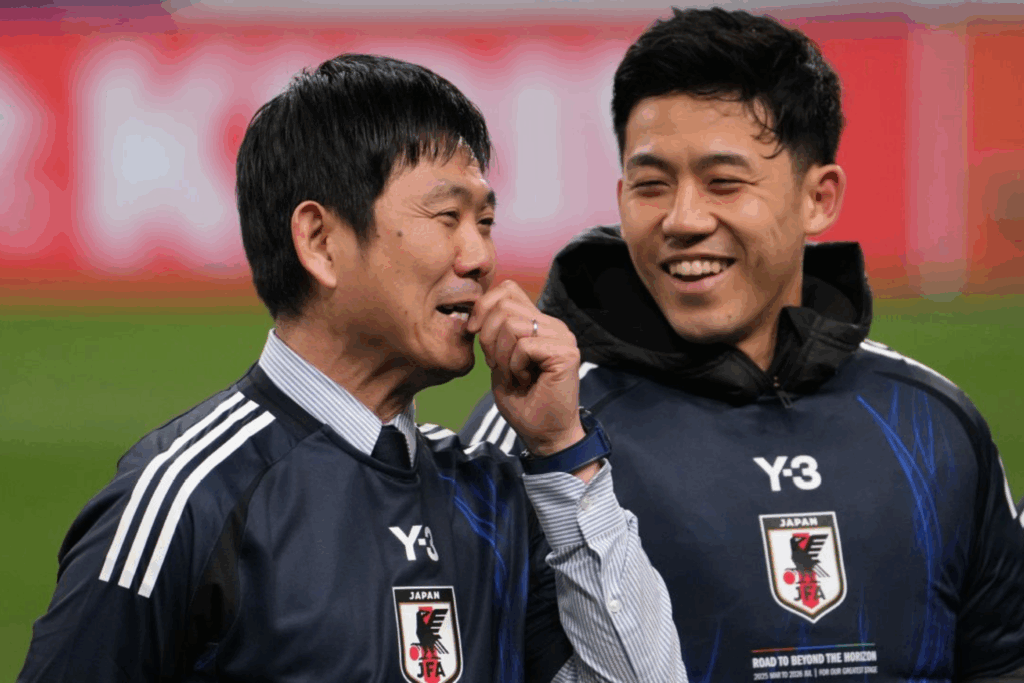
Japan, meanwhile, are already looking ahead to next year’s World Cup having secured their passage through in the previous international window in March.
While the game against Australia in Perth, and their final game in Osaka against Indonesia, remain Moriyasu’s immediate focus, he already has one eye on next year’s World Cup.
It’s why he’s made 14 changes to the squad that faced Bahrain and Saudi Arabia last time out, with the likes of Kaoru Mitoma, Ritsu Doan, Takumi Minamino, and Ao Tanaka all rested from the long trip to Australia.
He has handed debut call ups to eight players, while a further 12 player have single-figure appearances for the national team. It’s all done with one aim in mind – to win the World Cup.
“The ultimate goal is to win the World Cup,” he boldly declared in Perth.
“We play each game one by one. We take each game seriously. But still, we need to strengthen our squad. We need to expand our squad. We need to prove that Japan still has a lot more talent coming through.
“I would like to show the world that we still have lots of players who are coming through. I would like my players to shine on the very best stage tomorrow.”
One of the experienced players still in the squad is Takefusa Kubo, the young starlet who celebrated his 24th birthday on the eve of the game.
Speaking exclusively to The Asian Game, the Real Sociedad midfielder explained his role as a leader in the team, especially with such an inexperienced squad around him.
“The coach told me I had to be a leader in this group,” he said in Perth on Wednesday.
“But I think that we have (Wataru) Endo, we have (Yuto) Nagatomo, so they can care also about the young boys. For me, I think I have to be a leader inside of the pitch, not outside of the pitch.
“I want to demonstrate myself and lead them to the victory if we can, and also pay attention to set pieces because Australia is too strong in set pieces, and hope we can do (a good job) tomorrow.”
Not only will the game, expected to be played in front of a crowd of over 50,000, tell us about how far Popovic and his team have come, it will also tell us plenty about the depth and development of Japanese football as both have their eyes on prizes bigger than just the three points in Perth.


